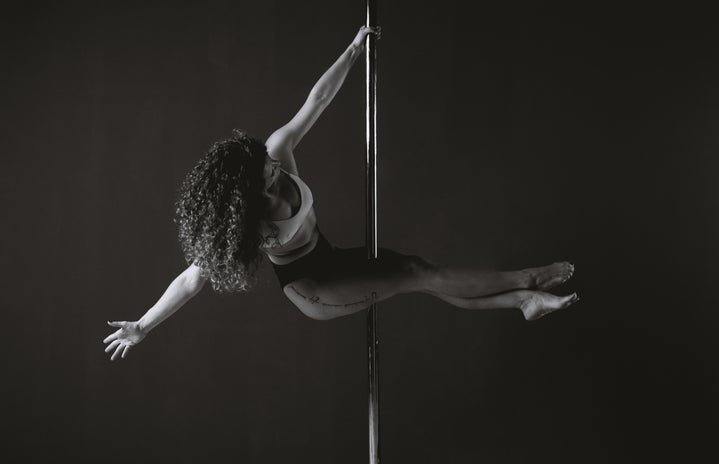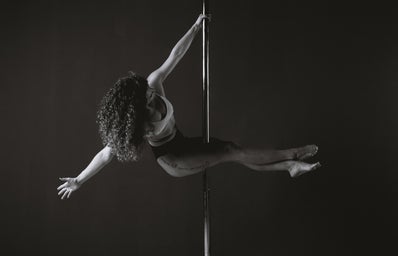When the subject is pole dance the first thing that comes into people’s minds are strip clubs, full of disrespect and misogyny. Pole, although, is nothing but a dance like any other and it goes way beyond those conceptions: it empowers women, while strengthening the body and mind. At the moment, the number of women starting to practice is increasing with the aim of feeling free, exploring their bodies through dance, strength and sensuality.
Pole dance has some aspects: physics, fitness and the most well-known, sensual. It gained this connotation when nightclub dancers realized that the movements in the bar had some sexual appeal, and from that, they started to use in their strip tease performances. Since then, dance started to be associated with nightclubs and sex, contrasting the ideals of society. Therefore, many people are bent when someone explains that they do pole as a sport.
Márcia Martins is a teacher of pole dance at Fisiopole Studio, an establishment founded by her in Santos, São Paulo, 8 years ago. To her, pole is embodied as a form of passion, power and healing, along with physical activity: “It means that you start to see yourself in another way, overcoming and evolving in all manners, realizing that you can do much more.” And Márcia guarantees that, through the practice, “you can achieve the most beautiful and profound encounter – that is, with yourself.”
The teacher says that pole entered her life very quickly. Her sister and partner, Mayra Martins, took her to her first class and, after that, she never stopped. “It was like a click”, she reminisces. “[Like] I always waited for that moment.” Shortly after, Márcia was already in Americana taking a course with the president of the Brazilian Confederation of Pole Dance and, months later, she set up her own studio, Fisiopole in the heart of Gonzaga.
Maria Carolina Godoy, a pole dance student, says that after she started to practice pole, her relationship with her own body changed. “After pole it improved a lot, because you discover that your body, the way it is, can make movements beautiful and unbelievable.” Márcia says that this is because pole is perfect for the body and the mind. “It improves self-esteem, helps with weight loss, strengthens and tones muscles, increases strength, helps with flexibility, balance, resistance, body awareness and motor coordination”, she explains
Despite all these benefits, pole dance is still not recognized by everyone as the physical exercise it is, which ends up causing in some situations crossed by sexism and misogyny. According to Maria Carolina, people are shocked when they know that this is the physical exercise she decided to do, exactly because it is not what people commonly associated with exercise.
Marcia, like Maria Carolina, also recalls occurrences in which pole dancing was a bit tainted by the preconceived, sexist perceptions. Her husband was surprised when she told him that she was starting in this world: “when I told him I was going to take a pole dance class, he said, ‘pole dance? Why do you want to do pole dance? I don’t think so.” However, just before she opened her studio, he started to support her and today is very present in this regard.
Pole dance is a misunderstood art. Demystifying and getting people out of the common sense that it is a dance just for pleasure and the masculine good is still a long way, but the fact that pole dance gives you the chance to work out while having fun and coming in contact with your being, fully, remains. Pole Dance is healing, empowerment and art.
———————————————————————-
The article above was edited by Isabella Gemignani.
Liked this type of content? Check out Her Campus Casper Libero for more!


